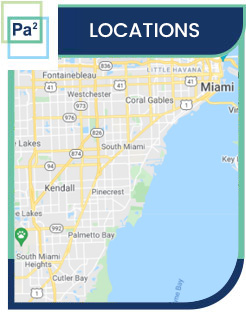Immunotherapy for Allergies Q&A
At Piniella Asthma + Allergy, our commitment to providing cutting-edge treatments for allergy sufferers is embodied in our advanced immunotherapy options. Recognized as a pioneering approach in allergy care, immunotherapy goes beyond the temporary relief of symptoms, targeting the root cause of allergic reactions. Catering to a wide range of allergies, our specialized team works closely with patients to customize treatment plans that promote long-term tolerance to allergens, offering a path towards significantly reduced symptoms and an improved quality of life. Get trusted and expert care for asthma by board-certified allergist Dr. Carlos Piniella, MD at Piniella Asthma + Allergy. For more information, contact us today or schedule an online appointment. We have convenient locations to serve all our patients in Coral Gables, FL and Palmetto Bay, FL.


Table of Contents:
Is immunotherapy good for allergies?
What is the best immunotherapy for allergies?
How many shots do you need for allergy immunotherapy?
Can allergies come back after immunotherapy?
Immunotherapy is widely regarded as a highly effective treatment for many types of allergies. By gradually exposing the body to small amounts of an allergen, this therapeutic approach aims to desensitize the immune system, reducing its overreaction to the allergen over time. This can lead to substantial alleviation of allergy symptoms and, in some cases, to a long-lasting reduction in the severity of allergic reactions. Suitable for a variety of allergies including pollen, dust mites, pet dander, and certain food allergies, immunotherapy can be administered through allergy shots or sublingual tablets, offering hope and improved quality of life to those suffering from chronic allergic conditions. The success of immunotherapy, however, depends on several factors including the type and severity of allergies, as well as the patient’s adherence to the prescribed treatment regimen.
Determining the “best” immunotherapy for allergies depends largely on the individual’s specific allergies, their severity, and their response to previous treatments. Generally, Subcutaneous Immunotherapy (SCIT), often known as allergy shots, is considered highly effective for a broad range of allergies including environmental allergens, such as pollen, dust mites, molds, and pet dander. These involve regular injections of the allergen in increasing amounts, encouraging the body to build tolerance over time. On the other hand, Sublingual Immunotherapy (SLIT), which involves placing a tablet containing the allergen under the tongue daily, offers a convenient and needle-free option, particularly beneficial for patients with grass and ragweed allergies. The choice between SCIT and SLIT usually hinges on several factors like the patient’s lifestyle, preference, and the specific advice of an allergy specialist. Nonetheless, both methods have been shown to effectively reduce symptoms and improve the quality of life for individuals with long-standing allergic conditions.
The number of shots required for allergy immunotherapy varies significantly between patients, depending on the severity of their allergies, the specific allergens involved, and their response to the treatment. Initially, patients may undergo a build-up phase, where they receive injections with increasing amounts of the allergen one to two times a week for about three to six months. This phase aims to gradually accustom the patient’s immune system to the allergen, reducing their sensitivity to it. Following the build-up phase, patients enter the maintenance phase, where the frequency of the shots decreases to once every two to four weeks. This phase can last for three to five years, during which the effectiveness of the therapy is assessed, and adjustments are made as necessary. The total duration and the exact number of shots depend on the patient’s progress, to achieve long-term desensitization to the allergens.
Despite the promising outcomes associated with immunotherapy, allergies still can recur after completing the treatment. The success of immunotherapy largely hinges on its ability to retrain the immune system to tolerate allergens without overreacting. However, in some cases, the immune response can gradually revert to its pre-treatment state, leading to the resurgence of allergy symptoms. This potential for relapse underscores the importance of a comprehensive post-treatment monitoring plan. It involves regular follow-ups with an allergy specialist to evaluate the long-term effectiveness of the therapy and to address any resurgence of symptoms promptly. The likelihood of allergies returning post-immunotherapy can also be influenced by various factors, including the severity of the initial allergy, the length of the treatment, and adherence to the maintenance schedule. Nonetheless, even for those who experience a recurrence of symptoms, immunotherapy can still offer a period of significant relief and an overall improvement in quality of life.
At Piniella Asthma + Allergy, we are dedicated to enhancing the lives of those afflicted by allergies through our comprehensive immunotherapy treatments. Our team of experts is here to guide you through each step of your allergy management plan, ensuring you receive the personalized care you deserve. Whether you are exploring immunotherapy for the first time or seeking advice on managing recurring symptoms, we invite you to reach out. For more information or to take the first step towards a life with fewer allergy symptoms, call us or book an appointment online. Together, we can achieve a better quality of life, free from the constraints of chronic allergies.
Trusted Immunotherapy for Allergies are available at Piniella Asthma + Allergy. We serve patients from Coral Gables FL, Palmetto Bay FL, Westchester FL, Brownsville FL, Kendall FL, Pinecrest FL, Richmond West FL, Goulds FL, and the surrounding areas!

Additional Services You May Need
▸ Asthma
▸ Allergy Testing
▸ Food Allergies
▸ Immunotherapy
▸ Patch Testing
▸ Allergy Treatment
▸ Pediatric Asthma Specialist
▸ Pediatric Allergist
▸ Insect Bite Allergy
▸ Drug Allergy
▸ Seasonal Allergies
▸ Skin Allergy

Additional Services You May Need
▸ Asthma
▸ Allergy Testing
▸ Food Allergies
▸ Immunotherapy
▸ Patch Testing
▸ Allergy Treatment
▸ Pediatric Asthma Specialist
▸ Pediatric Allergist
▸ Insect Bite Allergy
▸ Drug Allergy
▸ Seasonal Allergies
▸ Skin Allergy


